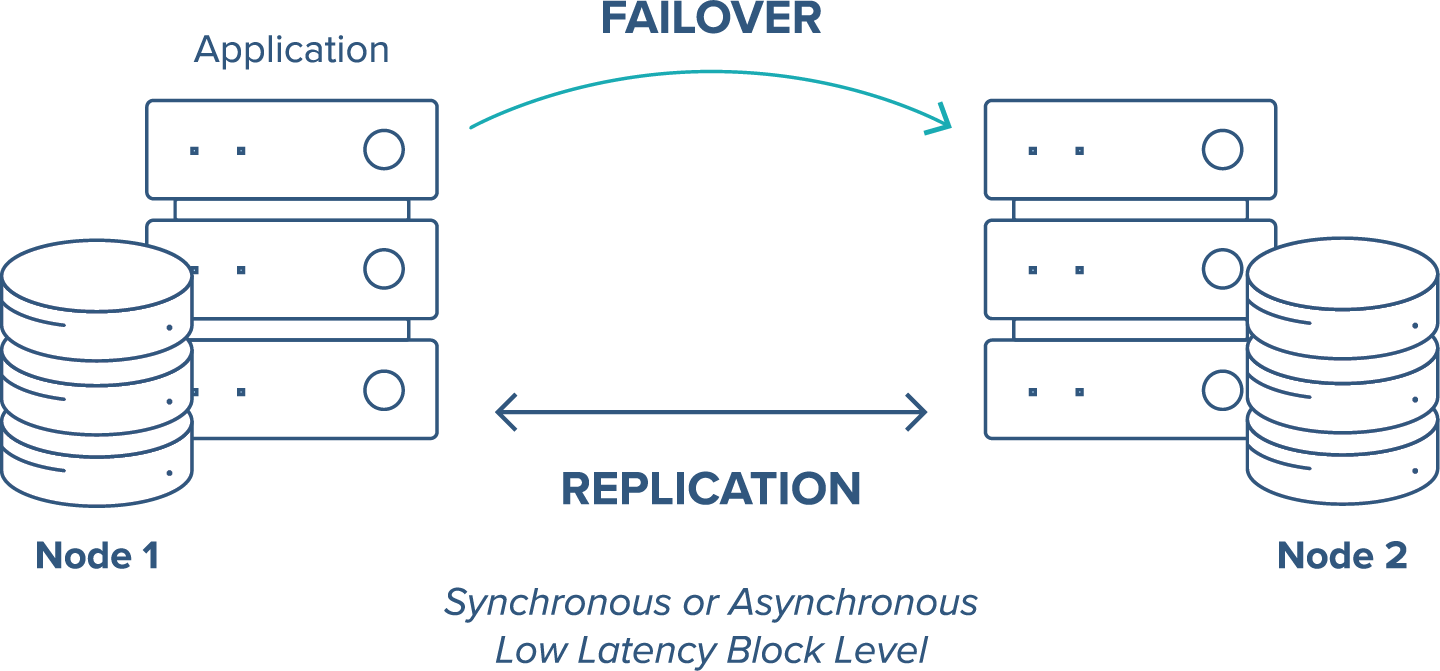SIOS DataKeeper
SANless Windows Server Failover Clustering
SIOS DataKeeper Cluster Edition is a software add-on that integrates simply and seamlessly with Windows Server Failover Clustering (WSFC) to add performance-optimized host-based synchronous or asynchronous replication. SIOS DataKeeper allows you to easily create a SANless cluster to achieve high availability and disaster recovery for your most important applications operating in the cloud, in virtualized environments such as VMware or on physical servers using only local storage. Use SIOS DataKeeper Cluster Edition software to protect your business-critical Windows environments, including Microsoft SQL Server, Oracle, SharePoint, Lync, Dynamics, and Hyper-V from downtime and data loss in a physical, virtual, or cloud environment.
REQUEST SIOS DATAKEEPER PRICING
For SQL Server protection, a common choice of availability is Microsoft Always on Availability Groups and Always on Failover clusters. SIOS DataKeeper provides a number of key benefits to achieve more reliable high availability and more comprehensive data protection.
On-premises, in the Cloud and in Hybrid Cloud Environments
SIOS DataKeeper Cluster Edition lets you build a cluster using your choice of industry-standard hardware and locally attached storage in a SANless configuration in a wide variety of configurations. SIOS SANless clusters not only eliminate the cost, complexity, and single-point-of-failure risk of a SAN cluster, they also enable you to leverage the latest in flash and SSD storage for performance and protection in a single cost-efficient solution. And you can add SIOS software to an existing hardware-based SAN cluster to achieve DR to a remote server in a recovery site or to the cloud.
Protecting Application in Cloud and Hybrid Cloud
SIOS DataKeeper lets you run your business-critical applications in a flexible, scalable cloud environment, such as Amazon Web Services (AWS), Azure, and Google Cloud Platform without sacrificing performance, high availability or disaster protection. SIOS DataKeeper is available in the AWS Marketplace and the only Azure certified high availability software for WSFC offered in the Azure Marketplace.

Scale Out File Server (SOFS) and Storage Spaces Direct (S2D), two technologies offered in Microsoft Windows for sharing disks, can’t be used in a cluster for sharing disks across cloud regions and availability zones. This limits your configuration to one data center (availability zone) and if there is a failure there, you can lose access to application services.
In contrast, SIOS DataKeeper Cluster Edition fully simulates clustered shared storage and is capable of providing fully certified high availability cluster protection across cloud regions and availability zones – giving you significantly greater protection from a broad class of failures.
Learn more about SIOS DataKeeper in the cloud
SIOS DataKeeper Cluster Edition for SAP in the Cloud – Enterprise-Class Protection
Using SIOS DataKeeper Cluster Edition, you can achieve high availability protection to critical SAP components including ABAP SAP Central Service (ASCS) Instance, back-end databases (Oracle, DB2, MaxDB, MySQL, and PostgreSQL), the SAP Central Services Instance (SCS).
Learn more from Microsoft on how to configure high availability using SIOS software in Azure
Incredibly Fast Replication Across Local and Wide Area Networks
It is a lightweight, host-based solution that minimizes the performance impact of replication on your application servers and network. It keeps real-time copies of data synchronized across multiple servers and data centers for fast, efficient disaster recovery.
SIOS DataKeeper uses fast, efficient, block-level replication to transfer data across both local and wide area networks with minimal bandwidth. It delivers incredibly fast replication speeds without the need for additional hardware accelerators or compression devices.
SIOS DataKeeper software provides real-time data replication for disaster recovery in Windows Server environments. It protects data in physical, virtual, and cloud environments and provides enterprise-class protection for all server workloads at a fraction of the cost of array-based replication.





